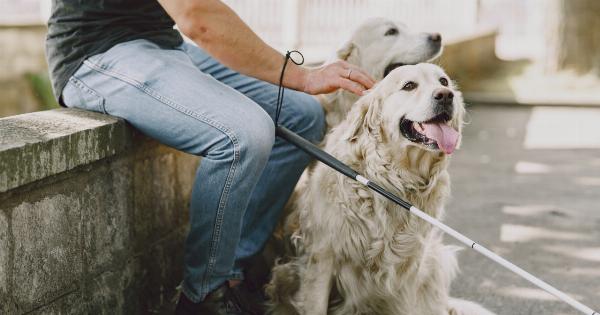As dogs age, they may experience a decline in cognitive function that can lead to dementia.
This can be a difficult time for both the dog and the owner, as the beloved pet may begin experiencing memory loss, confusion, and other signs of cognitive decline.
While there is no cure for dementia in dogs, there are several strategies that can be employed to slow down the progression of the disease and help improve the quality of life for your furry friend.
Here are some tips for slowing down dementia in aging dogs:.
1. Offer a Nutritious Diet
A proper diet is essential for dogs at any stage of life, but it is particularly important for seniors. A nutrient-dense diet will help support cognitive function and improve overall health.
Choose a high-quality dog food that contains plenty of lean protein, healthy fats, and complex carbohydrates. Avoid foods that are high in simple carbohydrates and refined sugars, which can contribute to inflammation and other health problems.
2. Encourage Physical Activity
Physical activity is essential for maintaining cognitive function and overall health in dogs. Regular exercise can help improve blood flow to the brain and stimulate the growth of new brain cells.
Even moderate amounts of exercise, such as brisk walks or short play sessions, can be beneficial for aging dogs with dementia. Just be sure to watch for signs of fatigue or discomfort and adjust the level of activity as needed.
3. Provide Mental Stimulation
Mental stimulation is just as important as physical activity for preventing cognitive decline in aging dogs. Provide your pet with plenty of toys, games, and puzzles that challenge their mind and keep them engaged.
You can also consider teaching them new tricks or skills to keep their brain active and engaged. Interactive toys and puzzles that reward your dog for problem-solving are particularly effective at providing mental stimulation.
4. Use Medications and Supplements
There are several medications and supplements that can help slow down the progression of dementia in dogs. Talk to your vet about prescription medications that can help improve cognitive function, such as selegiline or Anipryl.
You can also consider adding supplements like omega-3 fatty acids, vitamin E, and ginkgo biloba to your dog’s diet to support brain health.
5. Establish a Routine
Establishing a routine can help reduce stress and anxiety in aging dogs with dementia. Maintaining a consistent schedule for feeding, exercise, and playtime can help your pet feel more secure and stable.
Try to avoid disruptions to the routine as much as possible and provide plenty of positive reinforcement for good behavior.
6. Consider Other Therapies
There are several other therapies that can be helpful for dogs with dementia. Acupuncture, massage, and hydrotherapy are all effective at reducing stress and anxiety and can help improve overall cognitive function.
Talk to your vet about these and other alternative therapies that may be beneficial for your pet.
7. Provide Plenty of Love and Attention
Finally, remember that love and attention are the most important things you can provide for your aging dog with dementia.
Taking the time to snuggle, pet, and play with your furry friend can help reduce stress and anxiety and improve their overall quality of life. Be patient and understanding, and provide plenty of support and affection as your pet navigates this challenging time.
Conclusion
Dementia in aging dogs can be a difficult and challenging condition to manage, but with the right strategies and support, it is possible to slow down its progression and improve the quality of life for your furry friend.
By providing a nutritious diet, encouraging physical and mental stimulation, using medications and supplements, establishing a routine, considering other therapies, and offering plenty of love and attention, you can help your dog navigate this difficult phase with dignity, grace, and love.






























